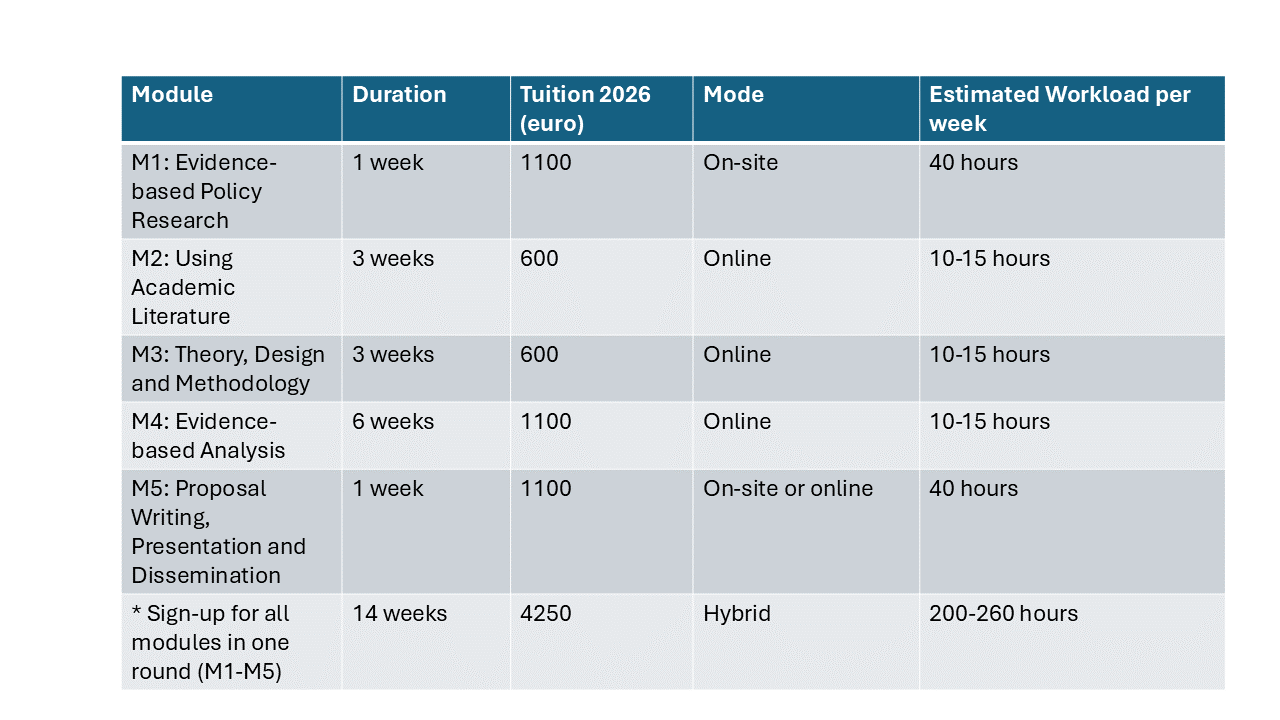About the Programme
This Evidence-Based Policy Research Methods (EPRM) programme equips participants with the fundamental tools for designing and analysing evidence-based research to enable better policymaking decisions. It is designed for working professionals who wish to increase their research skills. The 14-week programme can be completed alongside work in
EPRM trains participants in:
- Translating policy issues into research questions
- Preparing a research proposal, including for PhDs
- Analysing qualitative and / or quantitative data
- Understanding current academic developments in a particular field
- Designing, writing and disseminating proposals for evidence-based research, either in the workplace or in a broader research environment
About the modules
Module 1: Evidence-Based Policy Research
Module 2: Using Academic Literature
Module 3: Theory, Design and Methodology
Module 4: Evidence-based Analysis
Module 5: Proposal writing, presentation, and dissemination
Module 6: Support during Research Implementation (pilot)
Enroll for the full programme or individual modules:

Application Information and Deadlines
The application of EPRM can be done as a full programme or through a modular sign-up. Application deadlines, start and finish dates of the modules are included in the table. Please note the different application deadlines for non-visa applicants and applicants that require a visa for modules 1 and 5.
When in doubt about your eligibility for the programme, please contact the programme secretariat at eprm@merit.unu.edu
Please choose the registration form for your EPRM programme:
Payment
By credit card:
For 2026: https://www.aanmelder.nl/169403/subscribe
By bank transfer:
Bank account no.: 65.76.18.705
IBAN NL05 INGB 0657 618705
Swift or BIC code: INGBNL2A
Beneficiary: Maastricht University
Bank name: ING Business Banking
Bank address: P.O. Box 1800
1000 BV Amsterdam
The Netherlands
Payment specification: A/45320004033N.001 + last name
Refund Policy for Course Withdrawal
- Full Refund Before Registration Deadline: Participants who withdraw before the registration deadline and before official registration in the university system are eligible for a full refund of fees paid, minus 100 euro administration costs.
Partial Refund After Registration, until one week before the Course Start Date: If a participant withdraws after the registration deadline but before one week of the course start, 50% of the tuition will be refunded. - No Refunds Once Course Has Begun: No refunds will be issued in case withdrawal happens one week before the course starts.
